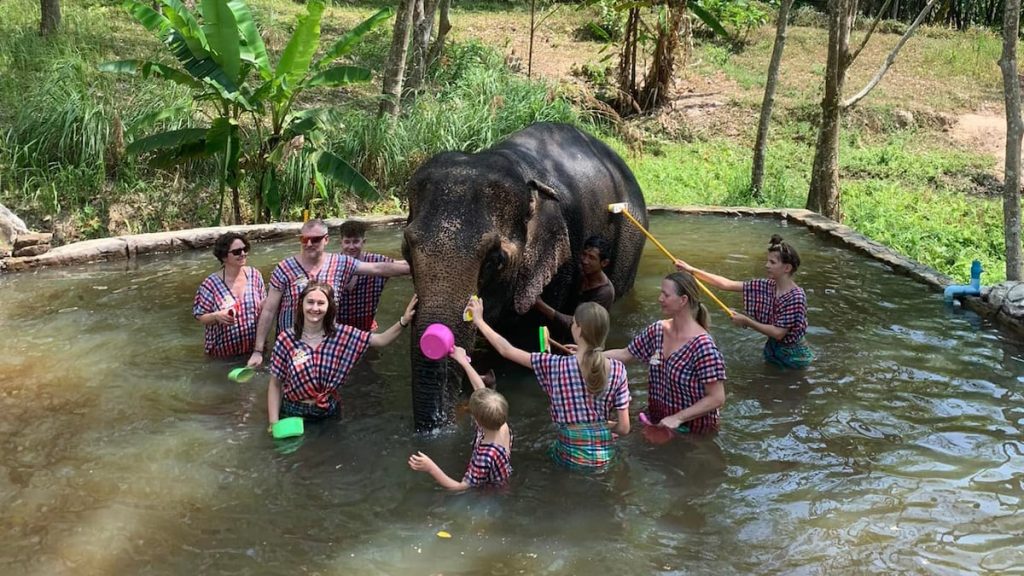A Spanish woman died on Friday after being attacked by an elephant in Thailand. The tourist was bathing the animal when it pierced her with one of its tusks as she walked in front of it. This caused her to sustain injuries that led to her death shortly after. The incident took place at the Koh Yao Elephant Care center in the city of Yao Yai, where the local police confirmed the woman’s passing to the news agency Efe. Washing elephants is a common activity at elephant leisure centers in Thailand, where they also participate in shows for tourists to cover the costs of their care.
This is the first death caused by an elephant attack in 2025. In the past 12 years, there have been 240 fatal accidents, most of which are due to wild animals encroaching on human-inhabited areas as a result of habitat loss. In 2024, 39 people died for this reason. The cohabitation between humans and wildlife is a delicate balance that needs to be managed carefully to prevent more tragedies like this. It serves as a reminder of the importance of wildlife conservation and the need to protect natural habitats to avoid these kinds of incidents in the future.
The incident highlights the risks involved in interacting with wild animals, even in controlled environments like elephant care centers in Thailand. While activities like bathing elephants may seem harmless, the unpredictability of these large animals can sometimes result in tragic accidents. It underscores the need for proper safety measures and regulations to ensure the well-being of both tourists and the animals themselves. Trained professionals should always be present to oversee interactions between humans and wildlife to prevent such incidents from occurring.
The death of the Spanish woman serves as a tragic reminder of the dangers inherent in human-wildlife interactions and the importance of respecting the boundaries between humans and animals. It is essential to remember that these animals, while magnificent, are still wild creatures capable of unpredictable behavior. Measures should be taken to ensure the safety of both humans and animals in these types of environments, such as enforcing strict guidelines for interactions and providing proper training for staff to handle such situations. Ultimately, it is crucial to prioritize the well-being of both humans and wildlife in any encounter between the two.
The incident has raised awareness of the need for stricter regulations and safety protocols in wildlife tourism in Thailand and other countries that offer similar activities. The tragic death of the Spanish woman has highlighted the potential dangers of interacting with wild animals and the importance of taking precautions to prevent such incidents. It also serves as a wake-up call for authorities and businesses operating in the wildlife tourism industry to prioritize safety and responsible tourism practices. By implementing stricter guidelines and safety measures, future tragedies can be avoided, ensuring the safety of both tourists and animals.
In conclusion, the death of the Spanish woman in Thailand as a result of an elephant attack serves as a somber reminder of the risks involved in human-wildlife interactions and the need for stricter safety measures in wildlife tourism. It is essential to approach these encounters with caution and respect for the animals’ natural behavior. By enforcing proper regulations and guidelines, tragedies like this can be prevented, ultimately ensuring the well-being of both humans and wildlife. The incident underscores the importance of responsible tourism practices and conservation efforts to protect natural habitats and prevent future incidents of this nature.


